Tennis is more than just a game; it is an experience, especially when played on some of the most unique courts in the Middle East. From breathtaking heights to artistic designs, these tennis courts redefine the playing field.
Burj Al Arab Helipad Tennis Court, Dubai, UAE
In 2005, tennis fans witnessed a once-in-a-lifetime match featuring legends Roger Federer and Andre Agassi, played on a helipad 210 meters above sea level at Dubai’s iconic Burj Al Arab hotel.
The helipad was transformed into an artificial grass court, providing stunning views of Dubai’s skyline and the Arabian Sea. This extraordinary event captured the hearts of tennis enthusiasts worldwide, proving that neither player had a fear of heights.
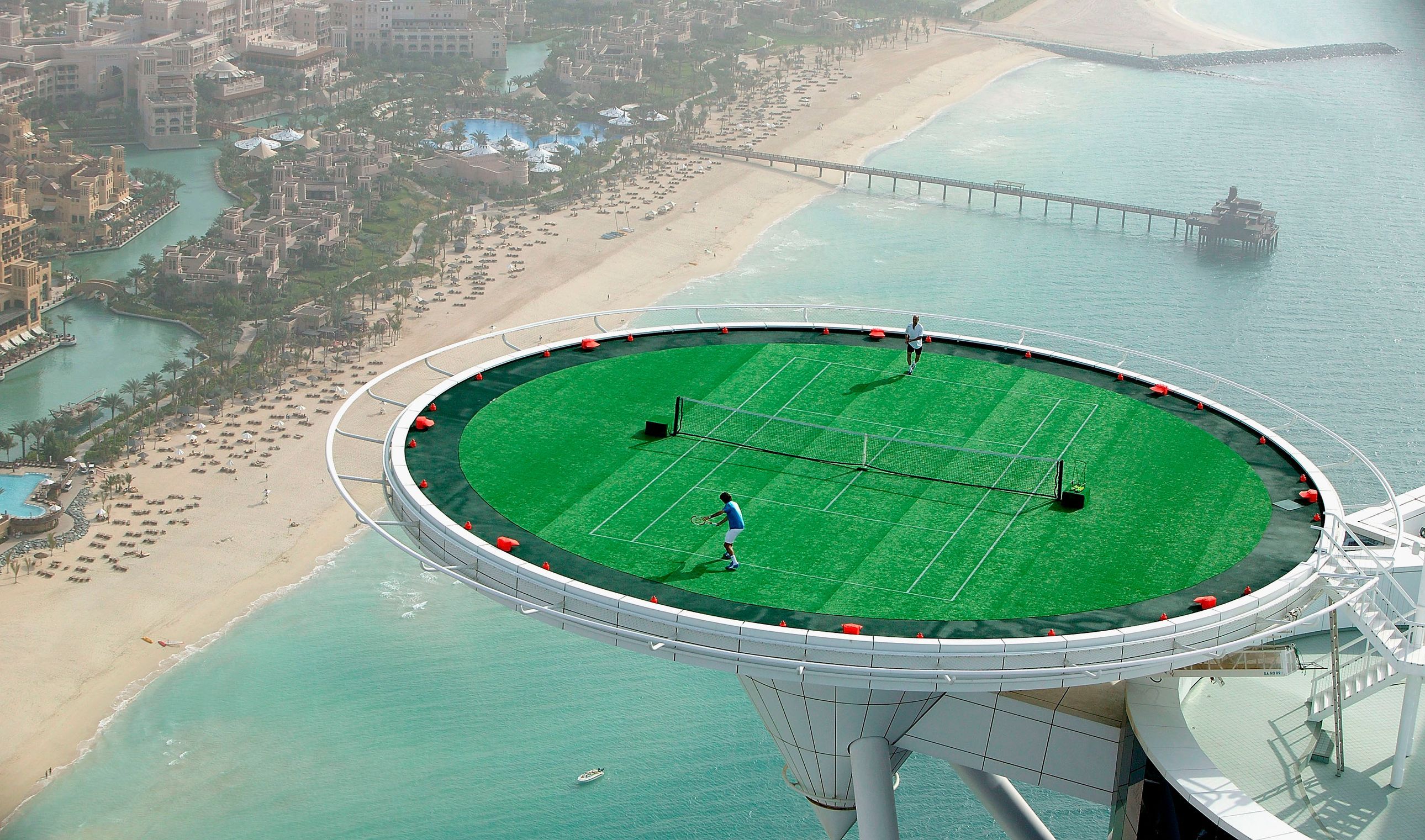
Carpeted Tennis Court, Jeddah, Saudi Arabia
Saudi Arabia has introduced a carpeted rooftop tennis court in Jeddah, designed by Blank Studio. This court is a stunning work of art, with the entire area—nets, rackets, and floor—covered in extraordinary carpet designs.
Playing tennis here is like being in an art gallery, turning each match into a visual experience.
The court has gone viral on social media, attracting visitors eager to experience this unique blend of sport and artistry.
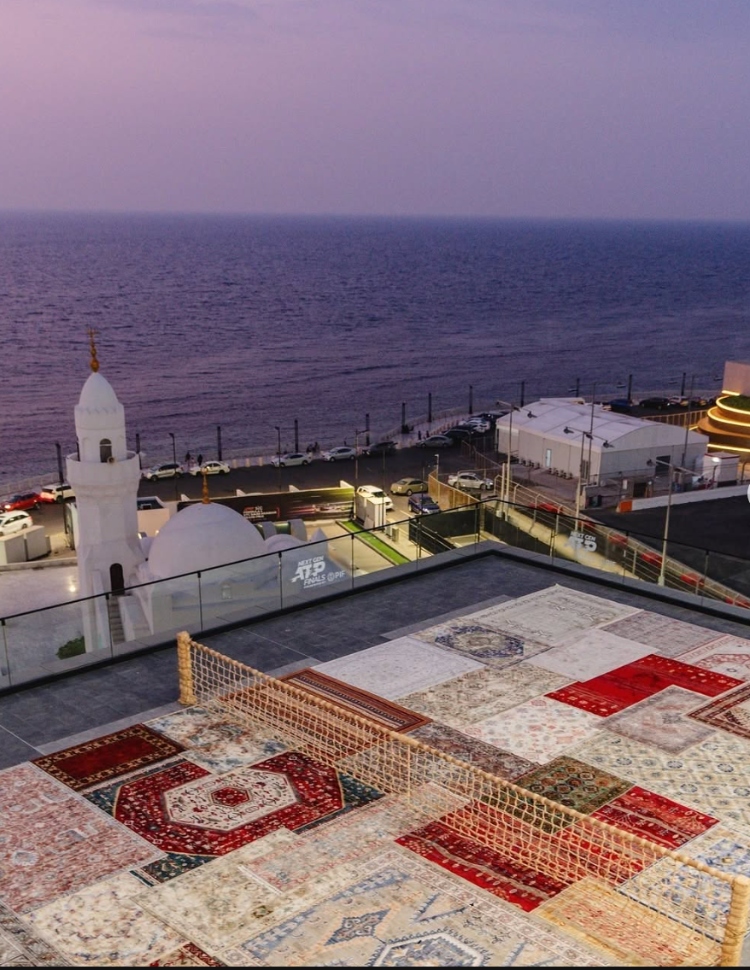
The Floating Tennis Court, Doha, Qatar
Nestled on the serene waters of Doha’s Corniche, the floating tennis court offers a truly unique setting for the game. Built on a platform that rises and falls with the tide, players can enjoy tennis surrounded by the stunning skyline of Doha.
In 2011, during a friendly match in Qatar, Roger Federer and his Spanish rival, former world No. 1 Rafael Nadal, played on this remarkable court floating in a lagoon in the Persian Gulf.
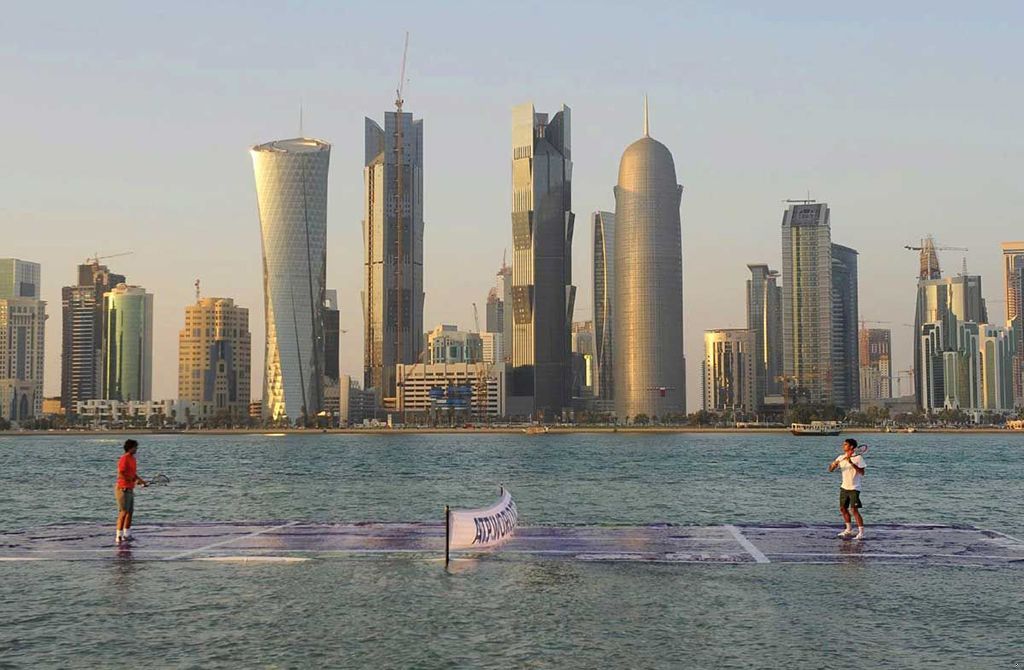
Lastly, one such ambitious project that made global headlines in April 2015 was the proposal for an underwater tennis stadium off the coast of Dubai.
Designed by Polish architect Krzysztof Kotala, the concept featured seven arenas beneath a carbon-glass dome, situated within a reef near the iconic Burj Al Arab. Although initial designs were completed, attracting investors and securing official approvals has proven challenging, and the court was never realized.
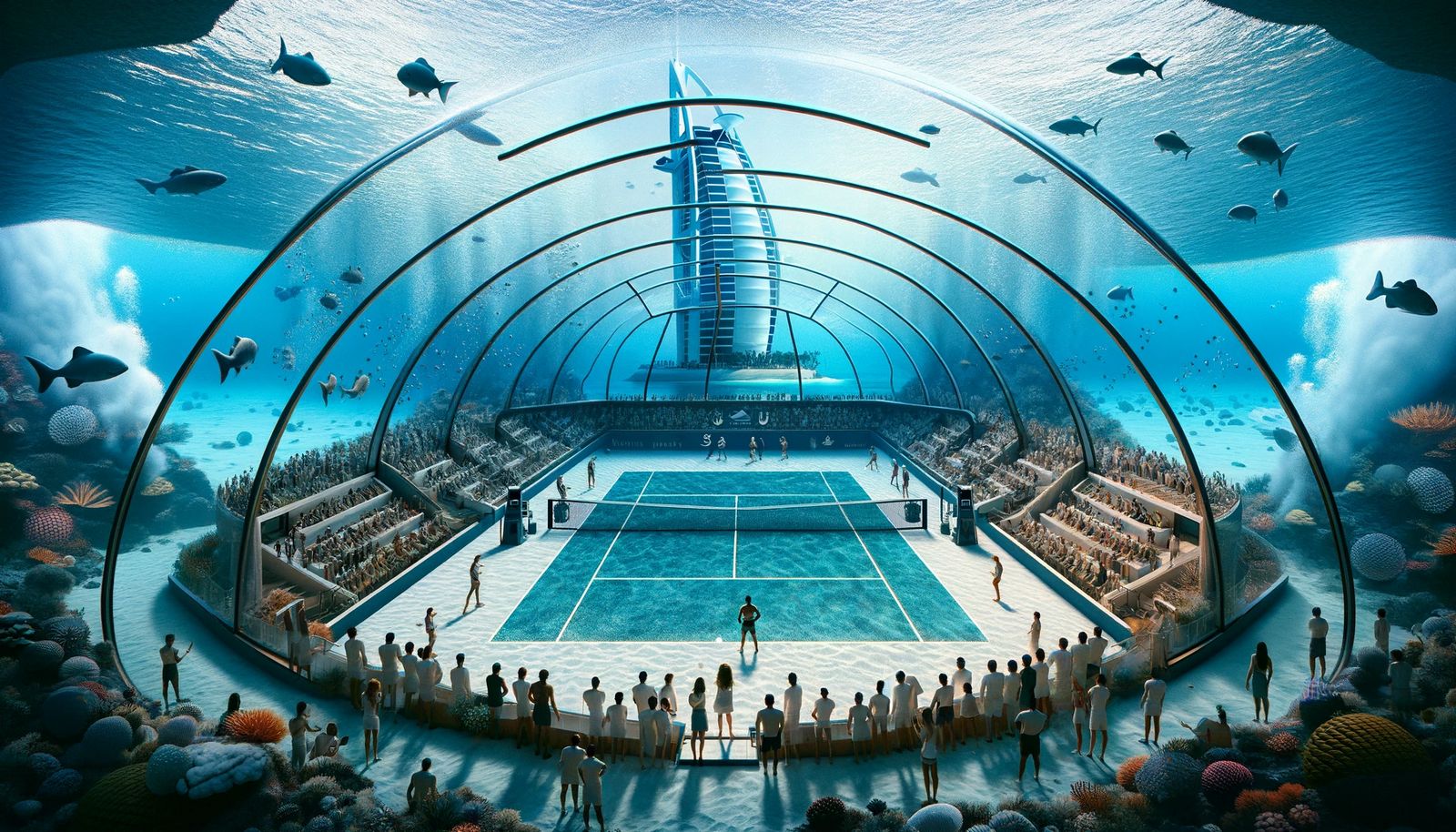
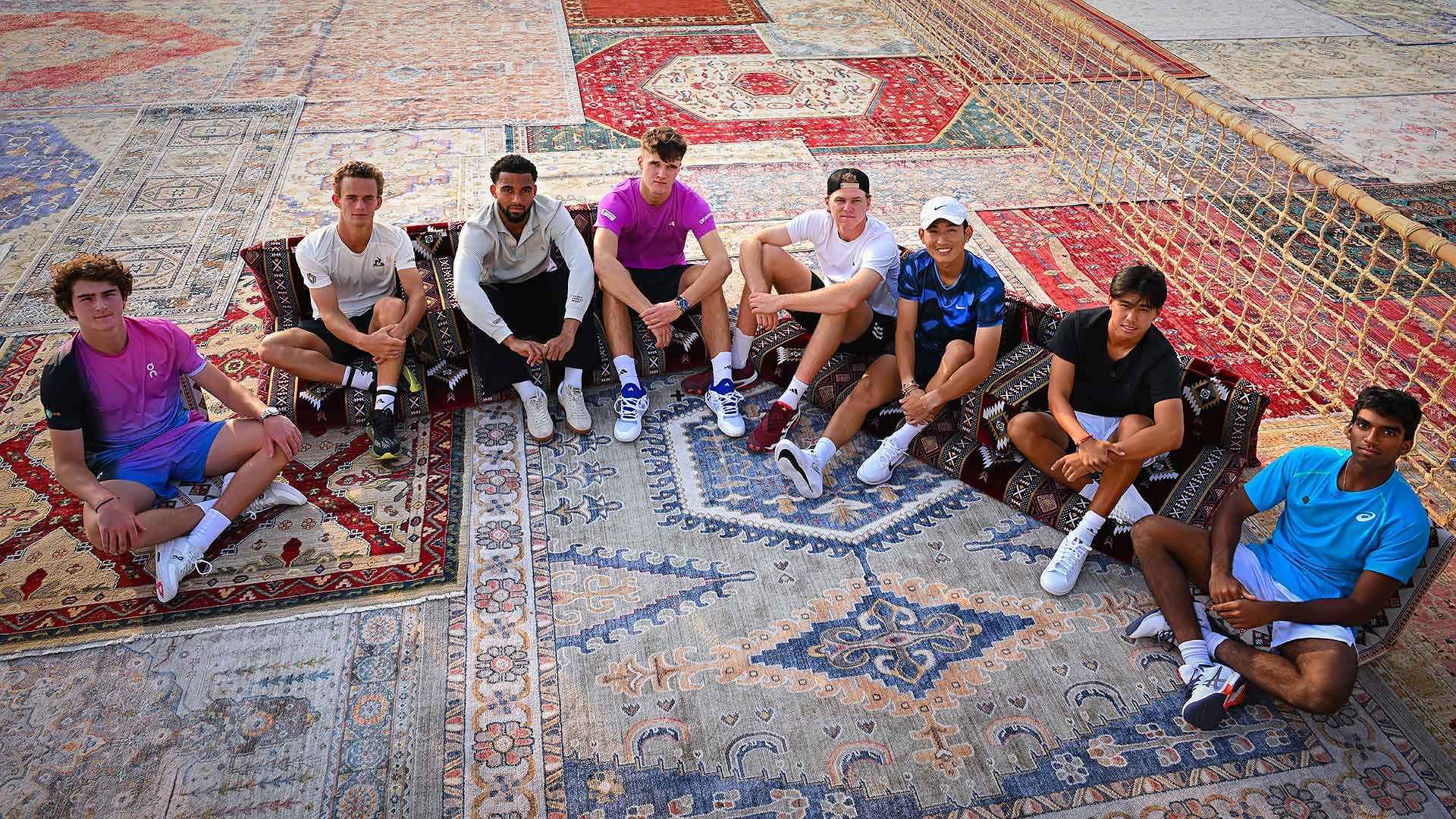




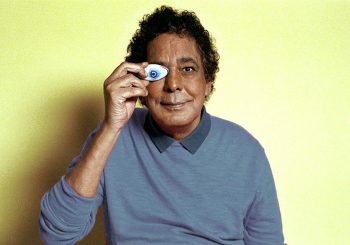

Comments (0)